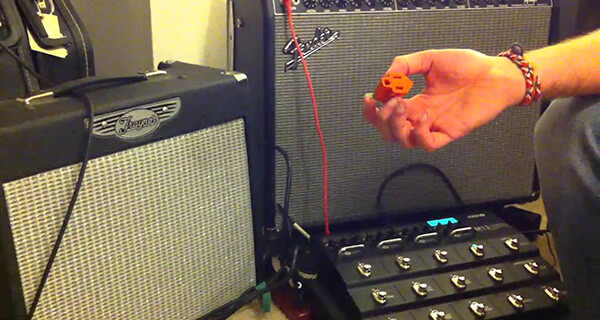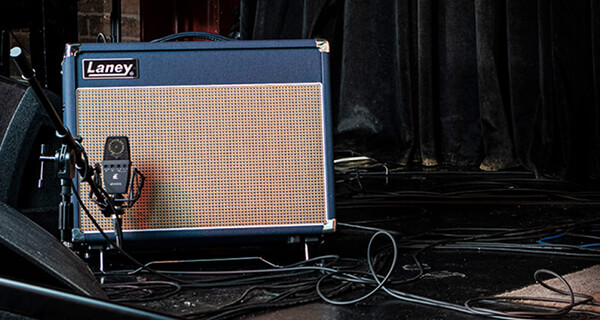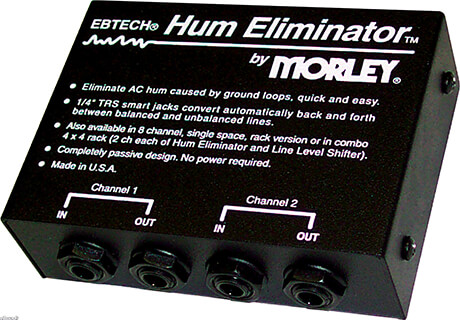Why Does My Amp Make a Buzzing Sound [Solved]
The realm of music and sound is a world of enchantment, where every note and chord holds the power to move hearts and stir souls. Yet, amidst this symphonic beauty, an unwelcome intruder often emerges: the buzzing sound that emanates from amplifiers. A musician’s or an audiophile’s worst nightmare, this persistent noise can mar the sonic landscape, leaving frustration in its wake.

In this exhaustive guide, we embark on a journey to unravel the mysteries behind this vexing issue. We delve deep into the labyrinth of reasons that conspire to make your amp produce that unwanted buzzing sound. Moreover, armed with proven solutions, we aim to restore the harmony, ensuring that your auditory experience remains unblemished.
# Table of Contents =>
a) The Buzzing problem:
i) Electromagnetic Interference (EMI):
Electromagnetic interference stands out as a leading catalyst for the disconcerting buzzing that infiltrates your amplifier’s output. This disruption, stemming from an orchestra of external elements ranging from power lines to the faint glow of fluorescent lights, the electronic devices that populate our lives.
Even the seemingly innocuous mobile phone radiates electromagnetic fields. These fields intertwine with the delicate fabric of your amplifier’s components, orchestrating an unwanted symphony of audible buzz that resonates throughout your audio landscape.
ii) Ground Loops:

Ground loops occur when there are multiple paths to ground within your audio system, creating a loop through which electrical noise can flow. This can manifest as a persistent humming or buzzing sound. Common causes include improperly grounded outlets and connecting devices with different ground potentials.
iii) Faulty Cables:
Often overlooked, damaged or low-quality cables can also introduce buzzing into your audio signal. Frayed wires, poor shielding, or connectors that are not securely attached can all contribute to unwanted noise.
iv) Tube Amplifier Noise:

Tube amplifiers, although cherished for their warm sound, can be prone to noise issues. Aging tubes, improper biasing, or even the presence of microphonic tubes can result in buzzing, hissing, or crackling sounds.
b) Diagnosing the Buzz:
i) Isolation Testing:
To identify the source of the buzzing, start by eliminating potential external factors. Move your amp to a different room or location to see if the noise persists. Turn off nearby electronic devices to check if they’re causing interference.
ii) Cable Check:
Swap out your audio cables one at a time with known-good ones. This will help you identify if a faulty cable is responsible for the buzzing.
iii) Grounding Test:
Ensure that your outlets are properly grounded. Experiment with lifting the ground on some of your devices to determine if ground loops are contributing to the noise.
iv) Tube Inspection:

If you’re using a tube amplifier, inspect the tubes for signs of wear or damage. Gently tap the tubes with a pencil while the amp is on to identify any microphonic tubes (ones that amplify mechanical vibrations).
c) Effective Solutions: Why Does My Amp Make a Buzzing Sound –
i) EMI Mitigation:
Physical Separation:
Keep your amp away from sources of electromagnetic interference. Place it at a distance from power lines, fluorescent lights, and electronic devices.
Ferrite Beads:
Attach ferrite beads to your audio cables. These can absorb high-frequency interference and reduce buzzing.
ii) Ground Loop Elimination:
Ground Lifts:
Experiment with lifting the ground on certain devices to break ground loops. However, this should be done cautiously, as it might affect safety and introduce new issues.
Hum Eliminators:

These devices are designed to isolate ground loops and remove unwanted noise from your audio signal.
iii) Cable Management:
High-Quality Cables:
Invest in well-shielded, high-quality audio cables. Ensure proper connections to eliminate potential sources of noise.
Cable Routing:
Keep audio cables away from power cables to prevent interference.
iv) Tube Amp Care:
Tube Replacement:
If you identify problematic tubes, consider replacing them with new, properly matched ones. This can often resolve buzzing issues in tube amplifiers.
Bias Adjustment:
If you’re comfortable working with electronics, ensure that your tube amp’s bias is correctly set, as an imbalanced bias can lead to noise problems.
d) Seeking Professional Help:
Amplifier Servicing:
If you’ve exhausted the DIY approaches and your amp still buzzes, it might be time to seek professional assistance. An experienced technician can diagnose and repair more complex issues within the amplifier’s circuitry.
Conclusion: In the intricate tapestry of sound exploration, the journey is often as enlightening as the destination itself. Our expedition into the realms of amp-induced buzzing has illuminated a diverse array of suspects, each capable of tarnishing the symphony we hold dear. Whether it be the enigmatic forces of electromagnetic interference, the intricate dance of ground loops, the humble yet pivotal role of cables, or even the complex, soulful world of tube amplifiers each plays a part in this auditory drama.
With the knowledge gained through our investigations, you’re now equipped to troubleshoot and conquer the buzzing menace. Remember, while the path may at times be challenging, the ultimate reward is a soundscape of unparalleled purity and richness. By adhering to our carefully curated solutions, you not only silence the buzzing, but you also become the conductor of your sonic destiny.
As you venture forth, let this guide be your compass, guiding you through the labyrinthine corridors of audio troubleshooting. May your musical journey be free from the distractions of unwanted noise, allowing you to revel in the true essence of the melodies you create or experience. After all, in this grand symphony of life, every note pure, unadulterated, and free from the shackles of buzzing is a testament to the magic that music and sound bestow upon us. Hopefully, you understand the main question of solution “Why Does My Amp Make a Buzzing Sound”.
Last Updated on September 10, 2023 by Perry Garner


